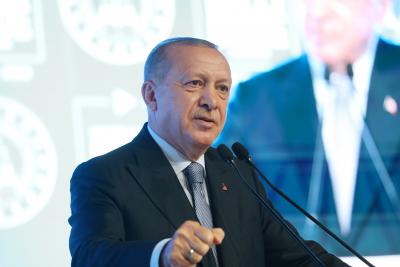Ankara, Oct 18 : Turkey has found more gas reserves in the Black Sea, President Recep Tayyip Erdogan announced.
“As a result of testing, analysis, and detailed engineering work, another 85 billion cubic meters were added to the reserves we had discovered,” Erdogan said onboard the Fatih drillship in the Black Sea on Saturday.
“Total amount of natural gas reserves in the Tuna-1 well in Sakarya Gas Field reached 405 billion cubic meters,” he added.
In August, the drilling ship discovered 320 billion cubic meters of natural gas reserves, Xinhua news agency reported.
The Fatih vessel started its drilling activities in late July in an exploration zone known as Tuna-1 off the northern Zonguldak province in the Black Sea region.
The President’s announcement came after the Turkish seismic survey vessel, the Oruc Reis, sailed to the Eastern Mediterranean Sea to resume its activities on October 12.
According to Energy and Natural Resources Minister Fatih Donmez, the vessel raised the anchor to “take the X-ray of the Mediterranean” following the completion of its maintenance works.
Last month, Turkey withdrew Oruc Reis from its activity area to a port in Antalya province for its monthly maintenance and supplies.
The vessel has so far collected a total of 3,525 km seismic data in the Mediterranean Sea.
The two development came amid heightened tensions in the region as Greece has disputed Turkey’s rights to energy exploration in the Eastern Mediterranean, Hurriyet Daily News reported.
Ankara sent out drill ships to explore for energy on its continental shelf, asserting its rights in the region as well as those of the Turkish Republic of Northern Cyprus.
European Union countries have been trying to mediate between Turkey and Greece over their conflicting demands.
Turkey says that Greece’s maritime territory claims in the region, based on small islands near the Turkish coast, are in defiance of the international law.
Greece and Turkey are both Nato members, but have a history of border disputes and competing claims over maritime rights.
Disclaimer: This story is auto-generated from IANS service.

